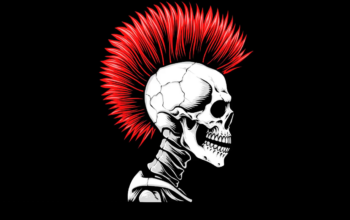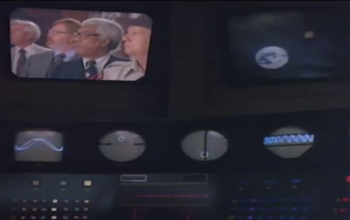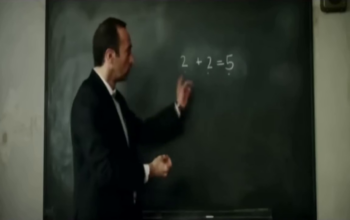Fonte: Dr. Marc van Ranst [1]
Dr. Marc van Ranst’s 15 steps to engineer and manage a psycho-pandemic, does it remind you of anything?
- Program the brain from day one
- Take advantage of the surprise factor, media blitzkrieg
- Unique center for spreading slogans and propaganda
- Single message repeated in unison
- Cancel political management and create a scientific committee
- New catchy names for the virus and virstars
- Shamelessly lying and making predictions
- Exaggerate the dead (make them up) on the front page
- Media coverage at the funeral of the virus dead
- Enlist influencers and VIPs
- Buy politics to prevent the truth from emerging
- Censor uncomfortable questions and messages from abroad
- Create the climate for the holy savior vaccine
- Sow fear of vaccine shortages
- Manage and minimize the collective awakening of the post-pandemic
* * * * * *
Thank you very much, thanks for the invitation.
I was asked to to tell you about my experiences being the crisis manager, the flu commissioner for Belgium, and highlight the communication aspect there.
These are some of my conflicts of interest over the past 20 years, I guess.
It all started for me at that time, actually in 2006, when I was appointed, this is an unpaid hobby, so it’s not a profession or a function, whatever, it’s really a hobby that flu commissioner thing.
On April 24 2009 that was when WHO said, “Okay there will be a pandemic”, and that’s when the thing started.
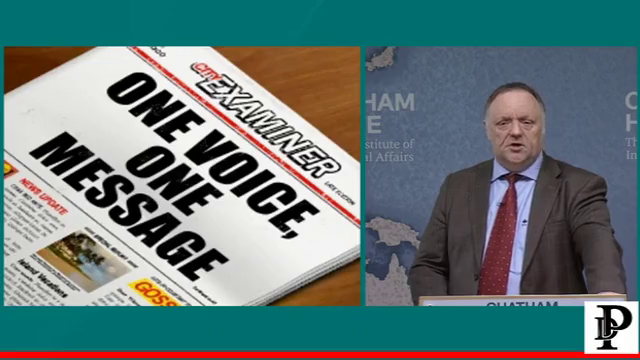
Then you have one opportunity to do it right, the day one is so important, in day one you start your communication with the press, with the people, and you have to do it right, you have to go for one voice one message, in Belgium they chose to appoint a non politician to do that, I have no party affiliations, and that makes things a little bit – at that time at least – a little bit easier, because you’re not attacked politically, majority minority, that doesn’t come into play.
That was a huge advantage, the second advantage is that you can play in Brussels the complete naive guy, and get a lot more done than you would otherwise be able to do.
One voice one message, that’s the tone that you set on day one and you have to be very transparent in that, my name is the “Interministerial commissary for pandemic influenza preparedness planning”, that of course is too long, that became the “Flu commissary”, and that was that was a lot easier.
You have to be omnipresent that first day – or the first days – so that you attract the media attention, you make an agreement with them that you will tell them all, and if they call you will pick up the phone.
When you do that, then you can profit from these early days to get complete carpet coverage of the field, and they’re not going to search for alternative voices there, if you do that that makes things a lot easier.
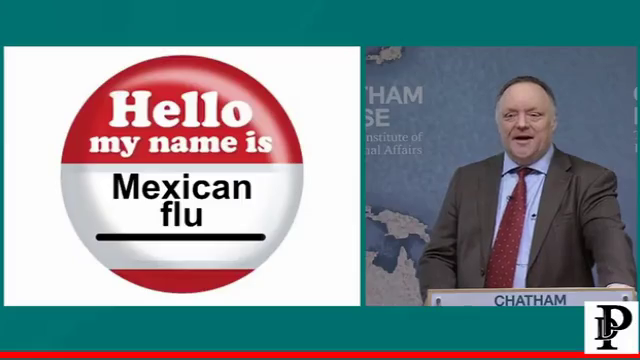
Then you convey the message – you can do that if you do it that way – that our country is ready for a pandemic, that is a gross overestimation for sure, but it is crucial to go into that pandemic.
First of all what’s in a name, if you talk about the pandemic is quite important, people were talking about the “Swine flu”, the “Pandemic H1N1/09 virus”, “Novel influenza”, “2009 A/H1N1 flu”, at some point it was called the “North American influenza”, the “Novel flu virus”, that was way too difficult so we called it the “Mexican flu”.
That got me into huge trouble with the ambassador of Mexico at that time, she was furious, afterwards we became good friends, I still get invited to her New Year’s reception every year.
People were making fun of it, and that’s probably unavoidable, but the fact to have a clear and recognizable name which was easy for the lay public to understand and use was actually quite important.
It also worked, this is the word of the year of 2009, “Defriending on Facebook” became number one, to my big disappointment “Mexican flu” was second and “Flu commissary” was number six, so the term works and that makes things a lot easier.
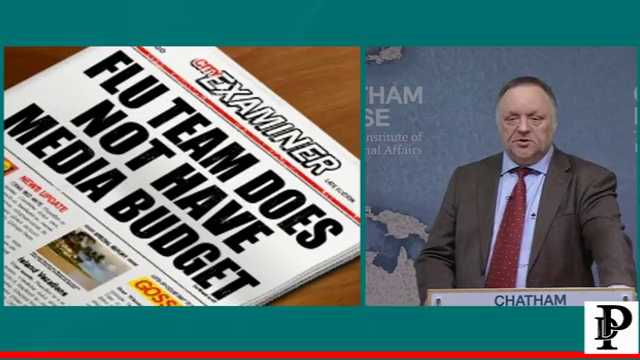
These first weeks that’s easy street, when you have no opposition, everybody needs news and they can come to you for news.
You can bring quite a lot of neutral information, it is picked up, the news is brought away, you bring it, you can only do that in the first couple of weeks or months.
One of the problems that we have, or that we had, is that we did not have a media budget, that was really 0 Euros that we could spend.
That means that you have to use every opportunity you can get to – well it’s not Britannia rules the waves but ruled the airwaves – to bring out your message, that’s something that you can do for free on radio, on TV.
If you have good preexisting relationships with the media, you can try something else, we tried the following thing, we asked all of the anchors of the different TV stations, “Are you willing for free to participate in a sort of infomercial that you would pay for, all of you?”, and they said, “Yes, we’ll do that”.
That was hugely influential, we would never be able, nobody will ever be able to pay for something like this, but if you have pretty good preexisting relationships with them then you can ask for return favor and they will or they might do that.
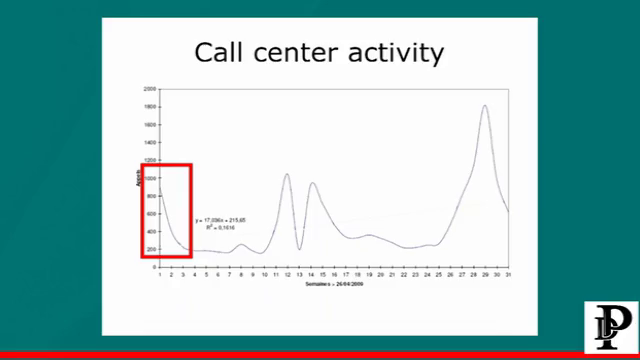
One of the things that we tried, but it was 10 years ago, was using Facebook and and Twitter, but there were not enough people on Facebook and Twitter at that time to really have an impact.
If we would do that now that would be a prime channel to communicate, however that works both ways, and also the fake news would be transmitted much more readily through Facebook through Twitter than it did 10 years ago.
Answering the question of the day – no matter what the journalist’s question – is quite important, we had a call center which was gradually becoming more and more populated, and every almost hour to hour, and later day to day, you have to get an idea what are the questions that people are asking, and every day these questions were delivered multiple times so that I could work them into the interviews – no matter what the question was.
The first questions, that was the first peak, that peak was about 900 calls per day, at the moment, at per week, at the first week the first questions were travel related, “Can I still go to Mexico? I have planned a vacation, can I get my money back?”.
If you solve that problem by declaring an emergency, you help quite a lot of people and that first peak goes away.
Then you have to predict the future, that’s hard because the future has not happened yet, predicting the past is a lot easier, but you have to predict the future in order to prepare the public and not have an over exaggeration or an exaggeration of the information in the press.
I said okay, Belgium, small country, we will also have H1N1 cases, when you bring that it is front page news, when then a couple of days later the first H1N1 case arrives in the country, it is the second time that I have to bring that news, they bring it in a more muted and I think appropriate way, you can only do that when you prepare the scene for that.
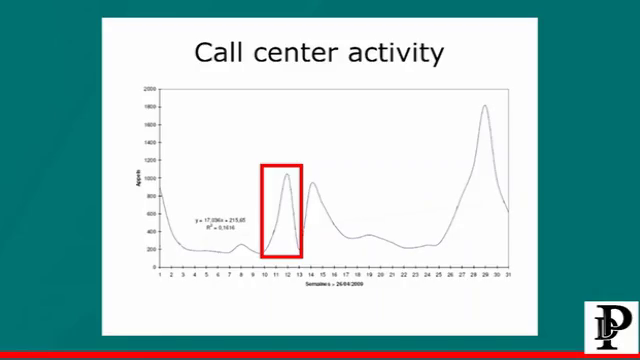
That was the second wave of questions, people were asking more questions about, “What do I do when I get sick?”, and so on, that gives you the opportunity to work with that.
Then you have to say, “Okay, we will have H1N1 deaths”, of course that would be unavoidable, I used there Sir Donaldson’s quote where he said that, “In the UK, by the peak of the epidemic, 40 people would die per day at the end of the summer”.
So 62 at that time million people in UK, 40 deaths a day, I worked it out for Belgium, that would be seven deaths a day at the peak of the epidemic, I used that in the media, seven Belgian flu per day at the peak of the epidemic would be realistic.
That is true in every year, even interpandemically, that is very conservative, however talking about fatalities is important because when you say that people say, “Wow, what do you mean? People die because of influenza?”, and that was a necessary step to to take.
And then of course a couple of days later you had the first H1N1 death in the country and the scene was set and it was already talked about.
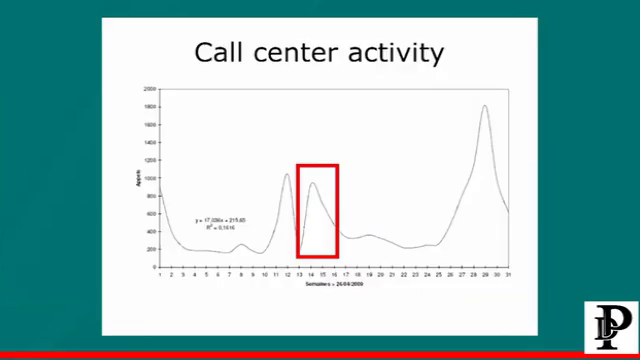
That was the third peak of questions where, the first that it had an impact and you have to deal with that.
I went to the first couple of funerals, you have to be very quiet, sit in the back, it shows that you care and I think that was at that time quite important.
So, all in all at that time, the overall feeling in the population, in the press, in the sports, the Belgian approach is reasonable, in fact, we wanted to be calm, cool and collected and our Mantra was, and that was from day one, “At this moment it is comparable more or less to seasonal influenza in terms of outcome, but we have to prepare for severe scenarios like in 1918, the first wave was rather mild and you could not predict that a second wave would carry high mortality”.
We focused on low cost basic hygiene measures, we did not do any school closures, we used antivirals for high risk groups, actually we used antivirals in the beginning for people who were ill, I had prepositioned cars in the different provinces and they would drive antivirals to patients when they would be diagnosed by influenza, in order to delay the onset of the epidemic, that worked until the end of the school year.
We only purchased one dose of vaccine per person, the vaccination plan would be to vaccinate more or less the same high risk groups as for seasonal influenza.
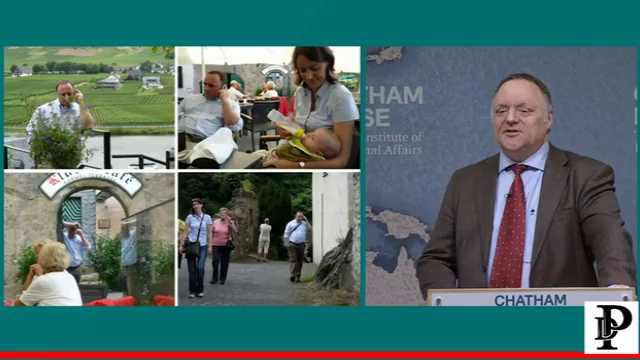
Then the vacation came and that is communication wise a very dangerous period, it’s a dangerous period because the more untrained journalists are at the helm, you get the weirdest questions, they’re understaffed, more articles from other countries will come in and contaminate your message.
That was a weird period, that was a picture that my father took from the holiday with the grandchildren, I was not the most social guy, I must admit, my son was born two weeks before the pandemic struck, that was not a good time.
Then comes the time inevitably that they are going to talk about you, “The flu commissioner is really a great guy”, then you get the “Feel good” articles about “What does he like? What music does he like? Pictures from my first laboratory when I was 13 years old”.
It’s all feel good, but when they do that they also sharpen the axis at the at the same time, then your your personal life becomes a little bit compromised, they come to your home and you have to really limit that, because if you do not limit that then you have no life.
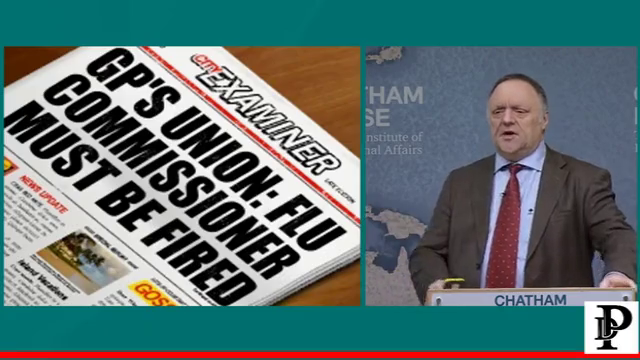
Then everything is set about the pandemic, about you, the search for controversy, at a certain point in time I had a controversy about the payment of the physicians for the mass vaccination that would happen in a couple of months or a couple of weeks later.
The quote that I gave them, in terms of how much money they would receive, that was far too low and I had to be fired, you can solve that quite easily, I said okay you want me to be fired, I would like to win the lottery, the odds of both of these things are happening are fairly slim, and that passed.
Then you come to the phase where they’re going to be much more critical, the first one was, “The government does not do enough”, “The H1N1 vaccine will arrive too late”, and “There will not be enough vaccine, get it while you can”.
That was the first atmosphere that was created, not enough vaccine, get it while you can, at that point I had to say okay, I will be the last one to be vaccinated, you can all go in before me, I’ll be the last one, later on I regretted that message.
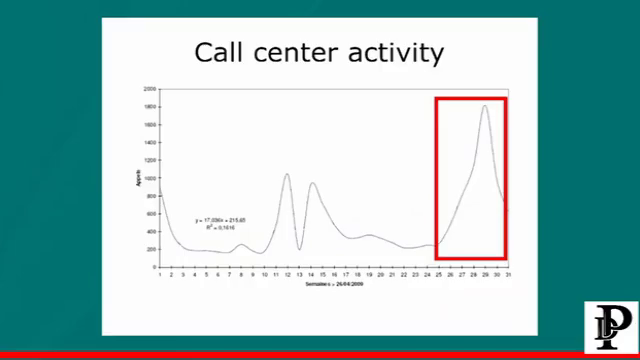
That vaccination campaign got a huge number of questions, actually the crux of the campaign was the vaccination campaign, and many people had questions there, you have to show them that you had the stockpiles, you had to walk there and walk in the rooms where you could show them that we have the vaccines, and there they are already in the country, a lot of reassurance was necessary there.
Then you have to pick who is going to be vaccinated first, women and children first, whatever, I mean risk groups they were important.
Then I misused the fact that the top football soccer clubs in Belgium, inappropriately and against all agreements, they vaccinated and made their soccer players priority people, I said I can use that because if the population really believes that this vaccine is so desirable that even the soccer players would be dishonest to get their vaccine, I said okay, I can play with that, I made a big fuss about this, this is “Van Ranst is raving mad”.
It worked, actually these vaccination campaigns by the GPs went really really well, in a number of weeks everybody could be vaccinated, that’s still a fairly relevant portion of the, it worked fine in Flanders, you know Belgium it’s a complicated country, this is the vaccination coverage and you could see Flanders really well.
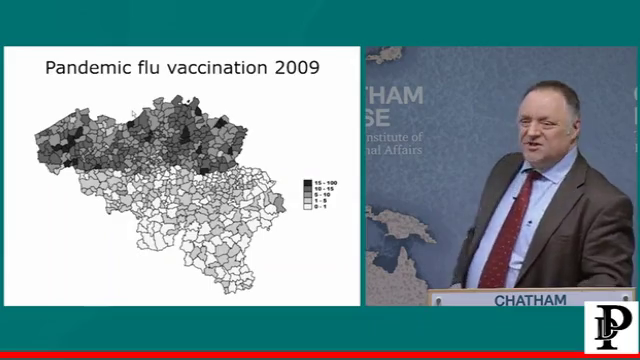
I did as many interviews in French as in Dutch, however in the Flemish part of the country we listen to the Flemish media, in the French speaking part of the country they equally often listen to or watch the french television, where all kinds of other messages were coming across, that was really polluting the vaccination campaign.
Then of course people say, “Okay, the vaccine is unsafe”, then you get the “Swine flu hoax”, and “The vaccine could kill you”, “Say no to the vaccine”, that atmosphere starts.
Then after the crisis, everybody becomes smart and you have to accept that from the get go, the overall statement was, “The government did too much”, of course, because the number of deaths were disappointing to some people.
Then all the books are written, everybody uses all the data and forget that you had to take the decisions based on a fragment of the data that were available, or that would be available later on.
Then it was turned into a scam, people were really making money out of it, I think the council of Europe played a very bad role in this, this is Wolfgang Wodarg and I want to shame him actually because he in the council of Europe had a motion for a recommendation, “Fake pandemics – A threat for health”, basically said that all these virologists, vaccinologists, they all have money in their pockets, they’re dishonest people, that’s easy to say.
This is when you google for H1N1, of course there was a peak in October and November, you didn’t hear Wodarg at that time, when you google Wodarg you see that it starts nicely after the end of the pandemic, people become very brave at the end of the pandemic, I think that’s not good.
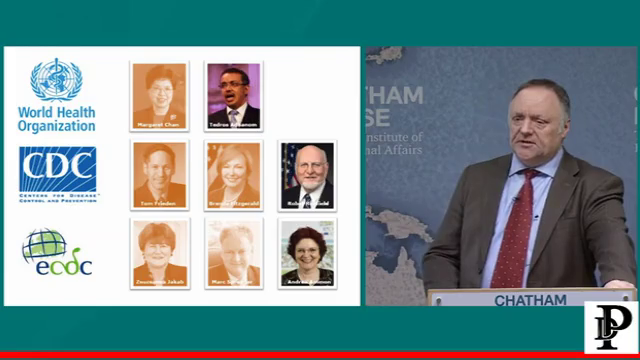
Then as time goes by, I still have one minute and 51 seconds, I would like to actually issue a warning, this all started in April 2009, many years have passed, in fact 3560 days today, 508 weeks and almost 10 years have passed, that has an impact because people are forgetting about the pandemics a little bit.
This is when you look for influenza and pandemic in PubMed, until 2003 2004 there wasn’t much, then H1N1 came and some interest was raised, then the 2009 pandemic arrived and there was a lot of interest, and that is what happened since, the interest is scientifically going down.
Also the leadership is changing, this was a good exercise for a big pandemic, I agree, but when we’re moving farther away from 2009 that experience is being lost, at that time Margaret Chan leaded WHO, Tom Frieden CDC, Zsuzsanna Jakab the ECDC, we’re now one or two directors further and that experience from 2009 – have of course been other experiences – but that one is not there anymore.
The same for the leadership, the political leadership, at that time Obama, Brown, Sarkozy, in Belgium Van Rompuy, were there and we’re two or three political leaders further down the road, a lot of what was learned in 2009 has been sort of unlearned, and would have to be invented all, well there is still Angela Merkel and Ab Osterhous, they’re the main states, we can always count on them.
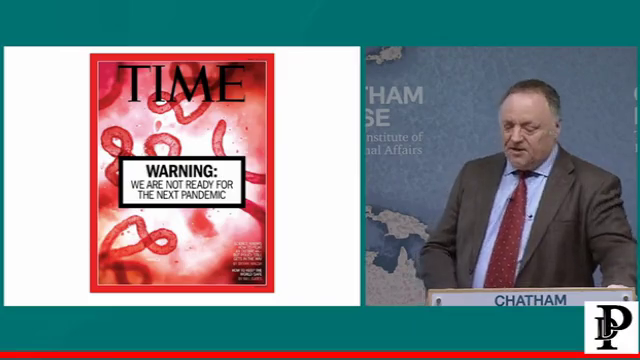
So are we ready for the next pandemic? I don’t think we are, I would say that pandemics are like a box of chocolates, I would like to invoke the words of the philosopher Forrest Gump, “You never know what you’re gonna get”, thank you.
